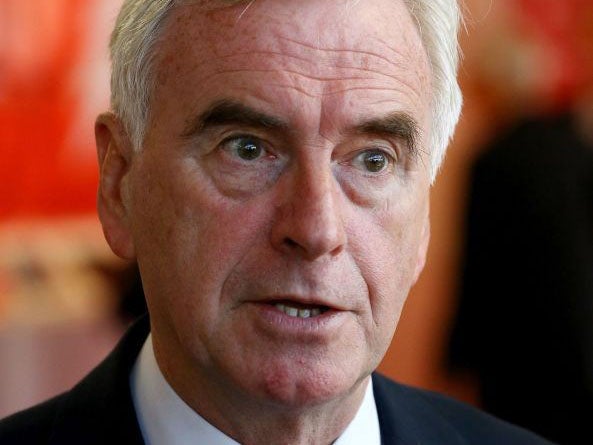Labour's new fiscal rules met with cautious approval from business groups
CBI statement seems to favour some of what shadow chancellor John McDonnell pledged in Royal Society of Arts speech

Business groups have given a guardedly positive to Labour’s attempt to win back economic credibility with a new set of fiscal rules.
The CBI issued a statement that seemed to favour some of what the shadow chancellor, John McDonnell, pledged in his speech to the Royal Society of Arts, although it did not go as far as endorsing the new approach. “We’ve always been clear that balancing the budget over the economic cycle is important to long-term prosperity” said the CBI’s head of tax and fiscal policy, Rob Fontana-Reval. “Within that framework, we have also been clear that any government must focus on investing in the drivers of productivity growth through prioritising capital spending, investment in skills and spurring innovation.”
Similarly, Dr Adam Marshall, acting director general of the British Chambers of Commerce, said: “We have long argued that there is a case for some public infrastructure spending to be taken out of the government’s deficit targets.
“This would give ministers greater discretion to invest in business-critical road, rail, digital and energy projects – particularly at times when current spending needs to be restrained.”
Labour’s new rules are different from the Government’s fiscal mandate in that they exclude capital investment from the five-year rolling target for budget balance. This means Labour could meet its rules while spending more on infrastructure than the Chancellor, who is pledged an absolute surplus by 2019-20.
Simon Walker, director general of the Institute of Directors, welcomed Mr McDonnell’s statement he is not in favour of excessive spending, but added: “Fiscal rules are less important than trust that a party will not give into the temptation always to increase spending and borrowing.”
Chuka Umunna, the former shadow business secretary, was positive. “I welcome the recognition that it’s possible to improve our economic credibility without capitulating to Osborne’s austerity” he said. But Mr Umunna noted that, not long ago, Labour moderates such as him who were arguing the party needed to do more to bolster its economic credibility and to tone down the anti-cuts rhetoric were being branded “red Tories” by some close to the leadership. “Tonally this is a recognition that what we were saying is right” he said.
Subscribe to Independent Premium to bookmark this article
Want to bookmark your favourite articles and stories to read or reference later? Start your Independent Premium subscription today.

Join our commenting forum
Join thought-provoking conversations, follow other Independent readers and see their replies